I am trying to combine multiple expressions in R into a single expression. Ideally, I would be able to do something like this:
g <- expression(exp(a[1]*x)/(1 + exp(a[1]*x)))
h <- expression(exp(a[2]*x)/(1 + exp(a[2]*x)))
c <- expression(g * h)
where a is a given vector of data and x is the only unknown (and it is the same unknown across all expressions). c would return
R> c
expression(exp(a[1]*x)/(1 + exp(a[1]*x)) * exp(a[2]*x)/(1 + exp(a[2]*x)))
Right now, when I do this I just get
R> c
expression(g * h)
I want to have an equation

(source: lehrfeld.me)
into which I could plug some vector a to obtain a function of x. What am I doing wrong here?